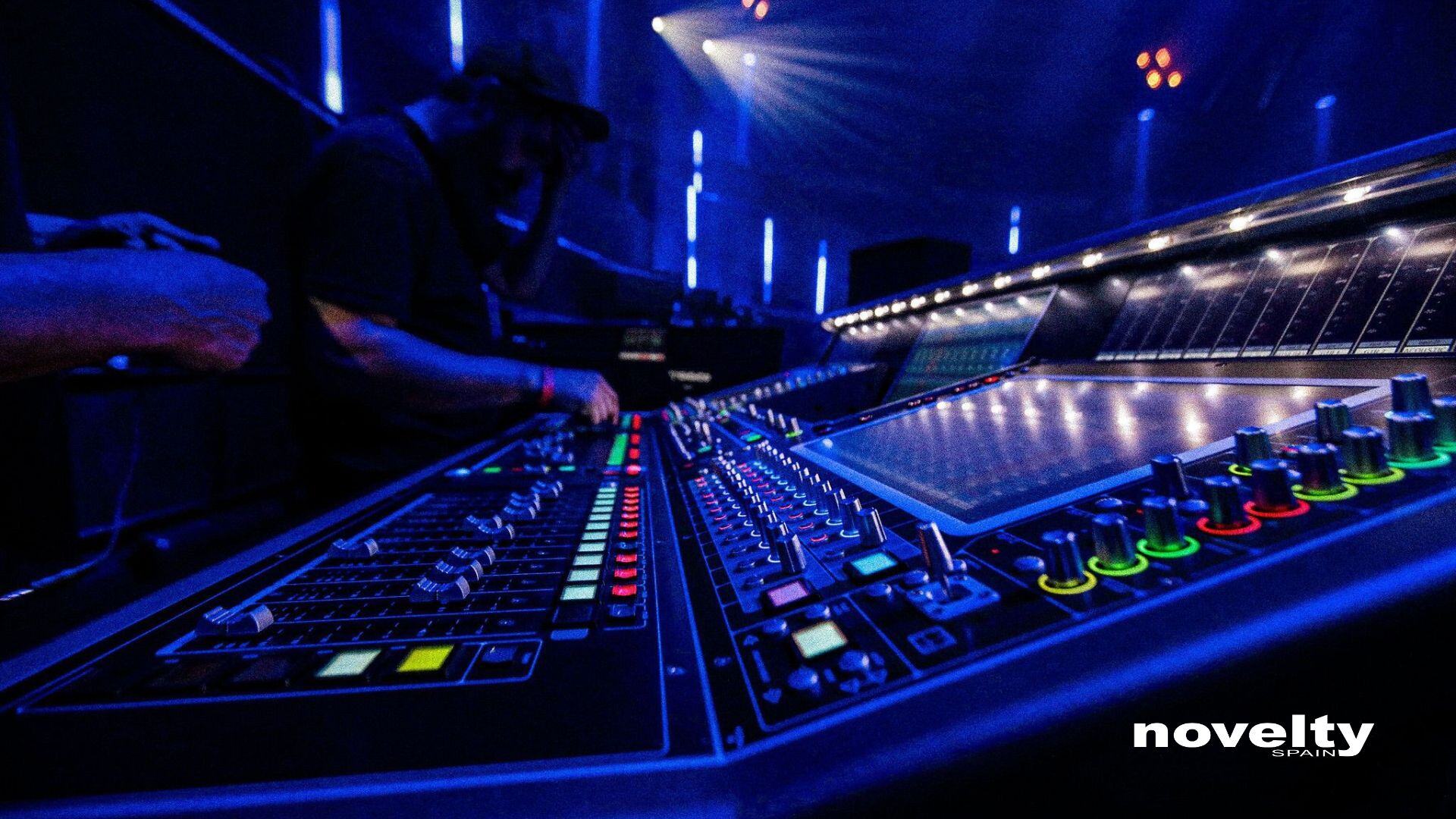Dushow Spain is now Novelty Spain
5 Tips for Optimal Management of Event sound equipment
The importance of event sound equipment goes unnoticed when everything runs according to plan. The intelligibility and power of the message to be communicated to the audience depend on it.
This article features five keys to correctly manage event sound equipment at your event. Want to find out how? Keep reading:
1. Ask for more than one quote and compare amongst different suppliers
Look beyond the bottom line at the end of the quote. Sit down and talk to your potential suppliers. Visit the venue where the event is to be held. Ask everything you need to know (there are many technical issues they'll help you understand).
The type sound equipment for events that should be chosen will also depend on the type of event. Sometimes, if you want to generate a specific acoustic space, the venue can become a problem: background music effect, emphasize presence of a specific speaker, concert, etc. At that time, you will need to study, prevent and let a good audiovisual partner provide you with guidance.
ATTENTION: If a supplier doesn't take the time necessary to do these things, it can be a bad sign. It can also be a symptom of things not running smoothly in their company, or that all they care about is selling their services.
2. Go visit potential audiovisual suppliers
Another extremely important step to find the perfect event sound equipment. The elements necessary to provide sound at events are as diverse as they are costly.
With one visit to your supplier, you'll see if they have everything necessary for your event in their warehouse, or if to the contrary, they'll have to outsource the equipment. In the latter case, the costs will logically be higher, and you will end up finding them in your quote.
3. Do not begin an event without one or two prior sound equipment checks
Make sure you have the space reserved in advance to be able to perform a sound equipment for events check: test speakers, band (if there is one), etc. Also remember: during sound checks, it is often essential that other work not be done so as to prevent interference.
During the tests of the sound equipment for your event, an attempt will be made to get the maximum performance from the sound system. So it's normal to hear the equipment operating at the highest volume, or with a little whistling or feedback. By triggering these situations on purpose, technicians will be able to foresee and solve most problems.
4. Check batteries and have them replaced for important tools
Of course, test microphones, as they are key elements of sound equipment for events: they are one of the most important assets for communication. If you don't know which to choose before attending the event, you can take several. Monitor batteries and have back-ups for important equipment.
It sounds so obvious it's almost absurd. But we believe that this one small detail can trigger real headaches if it is overlooked: charge and check batteries.
You should also have back-ups of certain pieces of equipment that could fail at important times during the event. Remember to also check the battery of the internal sound system. How are you going to communicate with event technicians? Whether you use ear pieces or walkie-talkies, make sure whatever system you have works correctly.
5. Have the necessary material and technical equipment
There are numerous technical elements that play a crucial role in determining the final quality of sound equipment for events installation. Even using the same equipment, performance and installation can mean the difference between success and total failure.
Not only should you consider the total number of watts to be installed, but also the coverage, acoustic coherence and frequency response. But another vital role is always the one played by people: every piece of equipment will be operated by an engineer, and the capability to handle, resolve and perform with precision and expertise will depend on them and their crew. Don't try to cut corners on staffing costs; it is one of the most critical pieces of any event sound equipment installation.
This article was first published in Novelty Spain, you can read the original Spanish version here.






